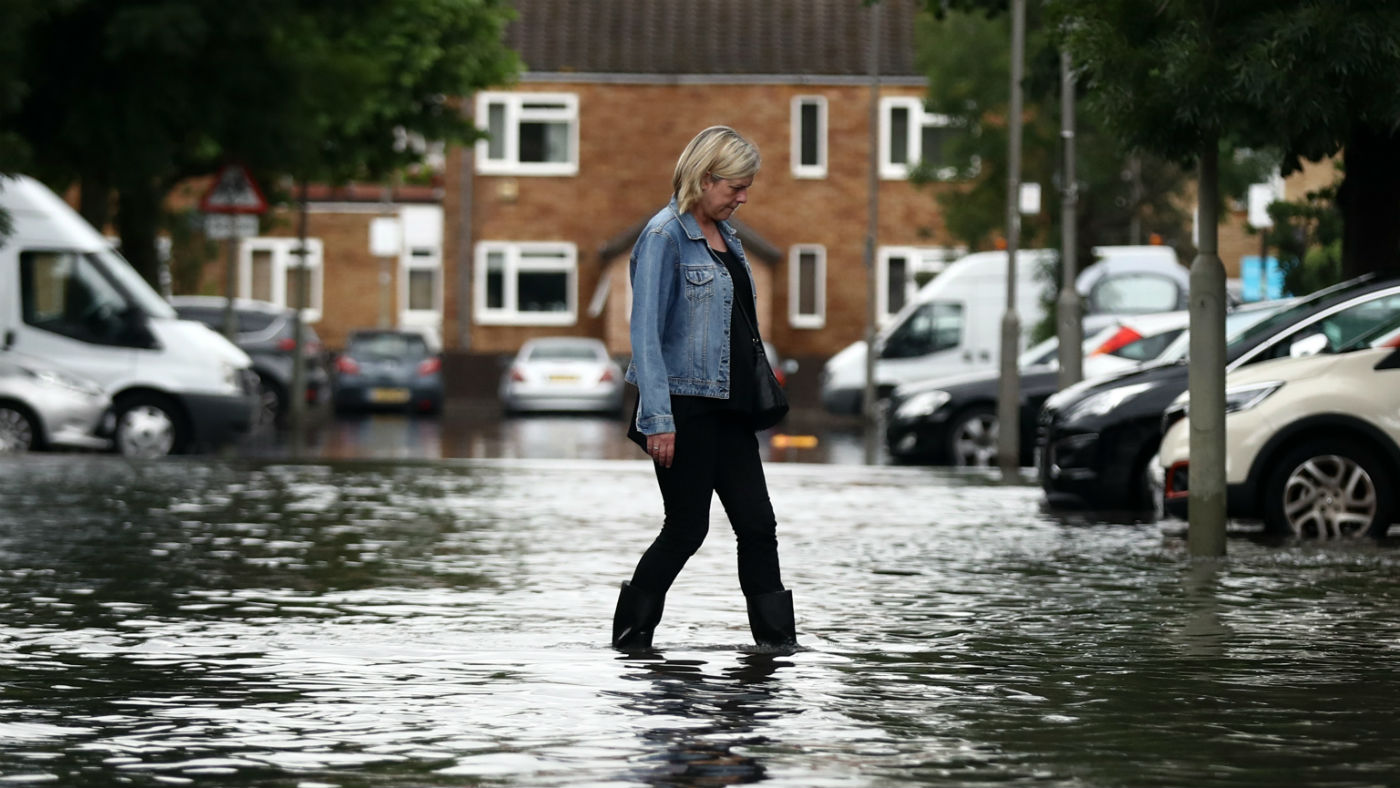Extreme weather will cost UK billions by 2050, warns WWF
Some 2.5 million homes are at risk over the next three decades unless ministers take action, the charity says

A free daily email with the biggest news stories of the day – and the best features from TheWeek.com
You are now subscribed
Your newsletter sign-up was successful
Extreme weather could cost the UK billions of pounds and hundreds of thousands of jobs over the next three decades, the WWF has warned as it urges the government to do more to “future-proof” the economy against environmental catastrophes.
A new report commissioned by the conservation charity based on a series of “natural capital” stress tests has found that floods could affect as many as 2.5 million homes by 2050 if current policies, such as building on flood plains, continue unabated.
The report suggests that a three-month drought in 2050 could result in the loss of 354,000 jobs and cost the economy about £35bn if reserves of water continued to be depleted.
The Week
Escape your echo chamber. Get the facts behind the news, plus analysis from multiple perspectives.

Sign up for The Week's Free Newsletters
From our morning news briefing to a weekly Good News Newsletter, get the best of The Week delivered directly to your inbox.
From our morning news briefing to a weekly Good News Newsletter, get the best of The Week delivered directly to your inbox.
Other “major environmental challenges” identified by the WWF include heatwaves, wildfires and disease outbreaks which could badly affect farming, causing the loss of some 347,000 jobs and cutting GDP by about 0.9 per cent.
Karen Ellis, chief advisor on economics and development at WWF, said that “our environment is changing quicker than people think”.
“This is bad for business, bad for our national economy, and bad for jobs,” she added, “but businesses and governments across the UK are giving it too little consideration when making decisions.”
The Independent reports that Coca-Cola has been working with the WWF and farmers in East Anglia to try to improve river water quality in the area where the soft-drink giant’s sugar beet is grown.
A free daily email with the biggest news stories of the day – and the best features from TheWeek.com
However, the WWF has called for a coordinated effort from ministers to deal with the threat posed by global warming and the significant increase in the numbers of roads, railway lines, care homes, schools, emergency services, hospitals and even mobile phone masts at risk because of flooding.
Earlier this year, Environment Secretary Michael Gove spoke of the need to ensure that the “insights of natural capital thinking and accounting” are used to inform policy.
However, a proposed 25-year environment plan, a draft version of which was leaked to the BBC earlier this year, has been criticised by campaigners for making “grand promises” but offering “zero detail”.
-
 Key Bangladesh election returns old guard to power
Key Bangladesh election returns old guard to powerSpeed Read The Bangladesh Nationalist Party claimed a decisive victory
-
 Judge blocks Hegseth from punishing Kelly over video
Judge blocks Hegseth from punishing Kelly over videoSpeed Read Defense Secretary Pete Hegseth pushed for the senator to be demoted over a video in which he reminds military officials they should refuse illegal orders
-
 Trump’s EPA kills legal basis for federal climate policy
Trump’s EPA kills legal basis for federal climate policySpeed Read The government’s authority to regulate several planet-warming pollutants has been repealed
-
 The plan to wall off the ‘Doomsday’ glacier
The plan to wall off the ‘Doomsday’ glacierUnder the Radar Massive barrier could ‘slow the rate of ice loss’ from Thwaites Glacier, whose total collapse would have devastating consequences
-
 Can the UK take any more rain?
Can the UK take any more rain?Today’s Big Question An Atlantic jet stream is ‘stuck’ over British skies, leading to ‘biblical’ downpours and more than 40 consecutive days of rain in some areas
-
 As temperatures rise, US incomes fall
As temperatures rise, US incomes fallUnder the radar Elevated temperatures are capable of affecting the entire economy
-
 The world is entering an ‘era of water bankruptcy’
The world is entering an ‘era of water bankruptcy’The explainer Water might soon be more valuable than gold
-
 Climate change could lead to a reptile ‘sexpocalypse’
Climate change could lead to a reptile ‘sexpocalypse’Under the radar The gender gap has hit the animal kingdom
-
 The former largest iceberg is turning blue. It’s a bad sign.
The former largest iceberg is turning blue. It’s a bad sign.Under the radar It is quickly melting away
-
 How drones detected a deadly threat to Arctic whales
How drones detected a deadly threat to Arctic whalesUnder the radar Monitoring the sea in the air
-
 ‘Jumping genes’: how polar bears are rewiring their DNA to survive the warming Arctic
‘Jumping genes’: how polar bears are rewiring their DNA to survive the warming ArcticUnder the radar The species is adapting to warmer temperatures